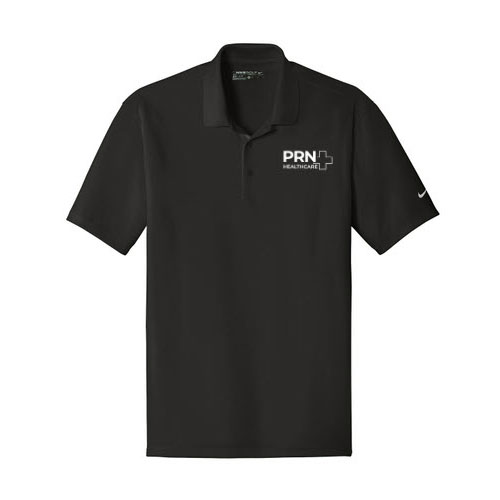Table of Contents
Interview QuestionsWhy did you choose to become a physical therapist?What do you find most rewarding about being a physical therapist?What are the most important qualities for a physical therapist to possess?How do you handle difficult patients?What types of conditions and injuries do you have the most experience treating?How do you stay current with medical research and advancements?Describe your approach to patient education.How do you assess a patient’s progress and determine when to adjust their treatment plan?Describe a time when you had to work collaboratively with other healthcare professionals. How did it go?Can you discuss your experience with using technology and equipment in physical therapy?How do you ensure patient confidentiality?What are your strengths as a physical therapist?How do you handle situations where a patient is not making expected progress?What is your experience with electronic health records (EHR)?Can you describe your experience working with specific patient populations, such as athletes, the elderly, or children?Can you give an example of how you’ve improved a process or procedure at work?How do you incorporate patient feedback into your treatment approach?How do you address and manage the emotional and psychological aspects of patient care?What do you think are the biggest challenges facing physical therapists today?What are your future goals as a physical therapist?Preparing for your interview is crucial because it increases your likelihood of securing a physical therapist job. Effective and thorough preparation helps a candidate present themselves with confidence, clearly articulate their skills and experiences, and respond effectively to the questions. Practicing potential interview questions allows a candidate to refine their answers, reduce their anxiety, and demonstrate they are the best candidate for the job.
Preparation will reflect positivity on a candidate’s enthusiasm and performance, and it will leave a good impression on the potential employer. In a competitive job market, being prepared can differentiate a candidate from other competitive candidates.
Interview Questions
Preparing for your physical therapist interview involves anticipating questions about both your technical knowledge and skill set. Here are 20 potential interview questions along with potential answers:
Why did you choose to become a physical therapist?
Answer: “I became a physical therapist because I have always been passionate about helping people improve their quality of life. The ability to assist individuals in recovering from injuries, managing chronic conditions, and enhancing their overall physical health is incredibly rewarding. Additionally, I enjoy the science behind human movement and the challenge of developing personalized treatment plans for each patient’s unique needs.”
What do you find most rewarding about being a physical therapist?
Answer: “The most rewarding aspect of being a physical therapist is witnessing the progress and improvement in my patients’ lives. Seeing someone regain their mobility, reduce their pain, or achieve a physical milestone they thought was impossible is incredibly fulfilling.”
What are the most important qualities for a physical therapist to possess?
Answer: “The most important qualities for a physical therapist to possess include empathy, strong communication skills, patience, extensive knowledge of anatomy and rehabilitation techniques, problem-solving abilities, physical stamina, attention to detail, and the ability to motivate and encourage patients throughout their recovery.”
How do you handle difficult patients?
Answer: “I have patience, empathy, and strive to clearly communicate. It’s important to listen to their concerns, validate their feelings, and establish trust. Setting realistic goals, providing consistent encouragement, and maintaining a calm and positive demeanor can also help in managing a challenging situation effectively.
What types of conditions and injuries do you have the most experience treating?
Answer: “I have extensive experience treating sports injuries, post-surgical rehabilitation, and chronic pain conditions.”
How do you stay current with medical research and advancements?
Answer: “I regularly attend medical conferences, participate in continuing education, and read professional journals to stay updated with the latest advancements.”
Describe your approach to patient education.
Answer: “I use clear, non-medical language to explain their diagnosis, treatment plans, and preventive measures. I often will use visual aids, hands-on demonstrations, and simple explanations to ensure patients understand their condition and the importance of their treatment plan.”
How do you assess a patient’s progress and determine when to adjust their treatment plan?
Answer: “I regularly perform assessments, track progress with outcome measures, and adjust the treatment plan based on patient responses and goals.”
Describe a time when you had to work collaboratively with other healthcare professionals. How did it go?
Answer: “I frequently collaborate with orthopedic surgeons and primary care physicians to develop comprehensive treatment plans, which has led to better patient outcomes.”
Can you discuss your experience with using technology and equipment in physical therapy?
Answer: “I am proficient in using technology like ultrasound, electrical stimulation, and computerized gait analysis to enhance patient care.”
How do you ensure patient confidentiality?
Answer: “I always adhere to HIPAA regulations, ensure secure storage of patient records, and discuss patient information only with authorized personnel.”
What are your strengths as a physical therapist?
Answer: “My strengths include strong clinical skills, excellent communication, empathy, and the ability to build trusting relationships with patients.”
How do you handle situations where a patient is not making expected progress?
Answer: “I re-evaluate the patient’s condition, adjust the treatment plan as necessary, and discuss alternative strategies with the patient and other healthcare professionals.”
What is your experience with electronic health records (EHR)?
Answer: “I am proficient with various EHR systems including x, x, and x. I’ve used them to document patient information accurately, streamline workflows, and improve communication within the healthcare team.”
Can you describe your experience working with specific patient populations, such as athletes, the elderly, or children?
Answer: “I have worked extensively with athletes on injury prevention and rehabilitation, and I also have experience in geriatric care, focusing on improving mobility and quality of life for elderly patients.”
Can you give an example of how you’ve improved a process or procedure at work?
Answer: “I identified inefficiencies in our rehab process, proposed and implemented a new system that improved patient outcomes.”
How do you incorporate patient feedback into your treatment approach?
Answer: “I actively listen to patient feedback during sessions and adjust their treatment plans accordingly to ensure they are comfortable and progressing.”
How do you address and manage the emotional and psychological aspects of patient care?
Answer: “I provide a supportive environment, actively listen to patient concerns, and, when necessary, refer patients to appropriate mental health professionals.”
What do you think are the biggest challenges facing physical therapists today?
Answer: “The biggest challenges facing physical therapists today include managing high patient loads, navigating complex insurance and reimbursement issues, keeping up with rapid technological advancements, complying with evolving regulations, ensuring patient adherence to treatment plans, and advocating for expanded scope of practice.”
What are your future goals as a physical therapist?
Answer: “My long-term goal is to specialize further in sports rehabilitation and possibly open my own clinic to provide comprehensive care to a broader community.”
Interview preparation is key to a strong, first impression. By practicing possible interview questions, a physical therapist can improve their communication skills, reduce their anxiety, and convey their qualifications and desire for a therapist position. Your preparation will boost your confidence and demonstrate your commitment and professionalism. Being well-prepared is an important step toward career success as a physical therapist.




